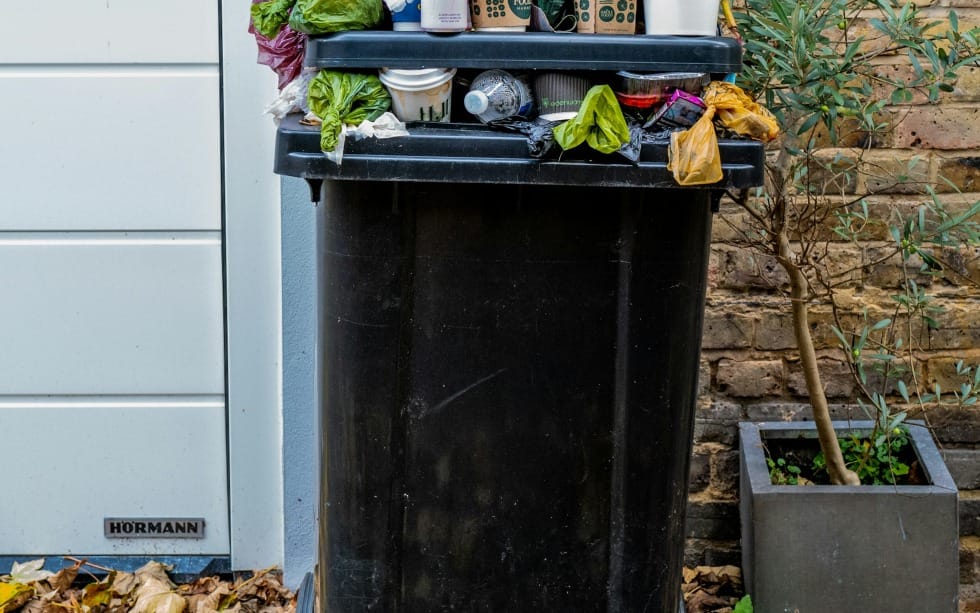It's Time To Take Out the Trash
What does taking out the trash teach us about the Christian life? Here are a few lessons.

When I was a kid, trash day always caught me off guard.
Even though it happened on the same day every week, it always blindsided me. I’d inevitably be deep in the trenches of my homework process (which often included a lengthy procrastination phase) when my mom would kindly remind me:
“Hey Tim, garbage gets picked up tomorrow.”
The reminder was devastating.
This wasn’t just rolling the trash out to the street. No, this chore had layers. I had to go through the entire house (the bathrooms, the laundry room, even my parents’ room) collecting every little trash can. Then I’d dump all those smaller cans into the main can in the backyard.
At that point, I took the big can out to the street, then brought all the little ones back inside and returned everything to its rightful place. All the while fretting that maybe I shouldn’t have procrastinated on my homework quite so much.
Just thinking about it gives me anxiety.
The Illusion of Clean
Now that I’m older, the trash routine has gotten much simpler. Today, our kitchen has a huge trash can with a tight-sealing lid to contain the smell. We even have a Roomba that vacuums the floors and empties itself into a base station. Trash practically collects itself now.
And yet, even with those improvements, someone still has to take out the trash. At some point, someone will notice the smell. The can will get full. The hidden garbage in the base station will eventually overflow. Even with all our advances, the only way to deal with trash completely is to remove it.
It’s the same with our spiritual lives. We can get good at appearing clean. We tidy up the visible parts and curate what people see. We get so used to managing our trash that we forget we’re still accumulating it.
1 John 1:8 addresses this illusion: “If we claim to be without sin, we deceive ourselves and the truth is not in us.”
We might think, I'm doing pretty well. Things look clean on the outside. But sin doesn’t always shout. Sometimes it settles—quietly, slowly—in the corners of our hearts. Resentment. Pride. Hidden habits. Quiet compromises.
It’s possible to go a long time without noticing the trash. Eventually, though, something surfaces. A reaction we didn’t expect. A painful word. A spiritual dryness we can’t explain. We catch a whiff and realize our trash is full.
Confession is that moment when we stop pretending our trash doesn’t exist. We stop acting like things are fine and admit that something’s not right.
It’s uncomfortable. It’s humbling. But it’s also incredibly freeing. Because on the heels of 1 John 1:8 (where we’re told that no one is without sin) a redemptive promise is made: “If we confess our sins, he is faithful and just and will forgive us our sins and purify us from all unrighteousness.”
Confession is like wheeling our trash out to the curb. We bring it to God. We acknowledge what’s truly there, without pretending or hiding. And he, in turn, forgives our sin. He looks at our trash and says, “I still love you.”
But he doesn’t stop there.
Then he does the work of taking our trash away.
The Garbage Truck
My two-year-old son is obsessed with the garbage truck. Every week, when he hears it rumble down the street, he yells, “Dump truck!” (We don’t correct him) and bolts for the window. He stands in rapt attention, watching as the big mechanical arm lifts each can, dumps it, and moves to the next house.
If my wife or I are anywhere within reach, he grabs our hands so we join him. He never gets tired of seeing the trash get taken away. And he wants to share in the phenomenon with everyone he can.
What if we approached confession with the same wonder?
What if taking out the trash wasn’t a burden, but a chance to celebrate? A moment to say, “Thank God he still comes.” A weekly rhythm of spiritual honesty, grace, and renewal.
You may be holding onto things you think disqualify you. You may have trash bags of failure stashed behind emotionally closed doors. But God isn’t waiting for you to clean yourself up. He’s waiting for you to be honest with him. To take your trash to the curb.
So bring it to him. Confess the things you’ve buried, the trash you’ve ignored. And when you do, take a moment to stop. Listen for the garbage truck.
And celebrate his faithfulness.





